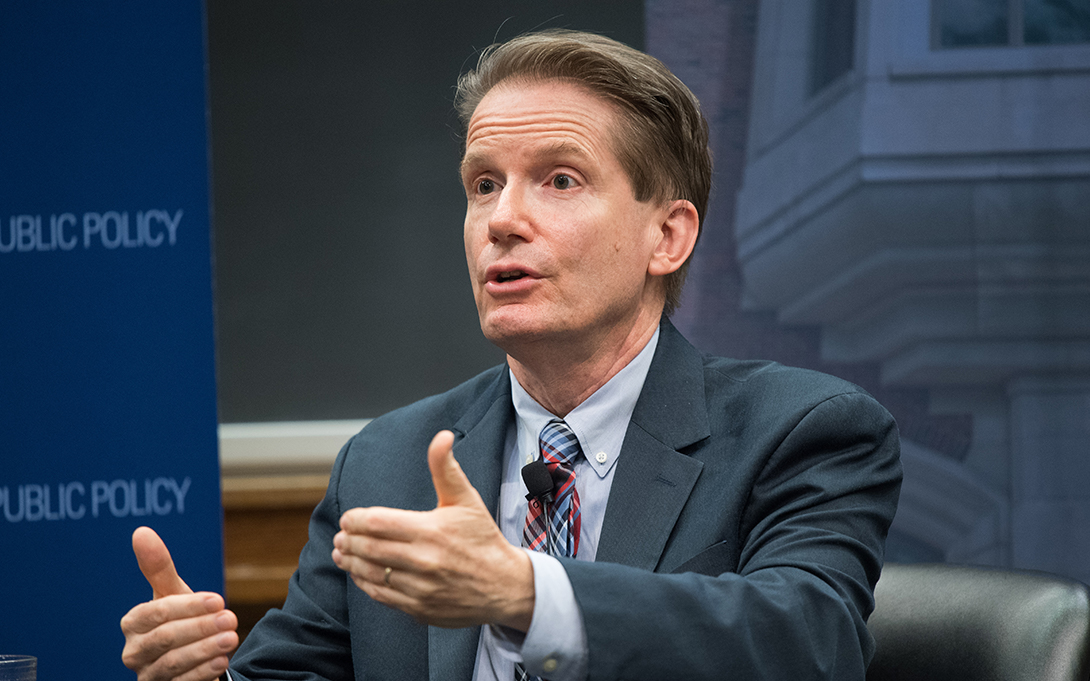
The political climate for action on climate change has become more difficult in the past few weeks, in light of a Supreme Court decision limiting the Environmental Protection Agency's (EPA) ability to limit greenhouse gases and the failure of a climate bill to pass in the Senate. An article in Politico declares, "‘Clear and present danger’: Climate’s new normal".
Ford School professor Barry Rabe has been called upon for his expertise on matters of the environment, public policy and politics.
Politico noted, "Welcome to the new normal, in which we must find ways to cope with the real-time effects of climate change at the same time as we seek to avert future threats."
“Europe has been the global leader on climate policy for at least the last 10 years. They have done the most in making their own adjustments. They’ve tried to find ways to put pressure on the U.S., the rest of the world and move this forward,” Rabe said. “And despite all of these efforts — and some real emission reductions in Europe — they aren’t able to hide from the effects of this either.”
The vote by Sen. Joe Manchin (D,WV) against a budget reconciliation bill that includes the measures to reduce climate change in the version passed by the House of Representatives last year "virtually guarantees that the United States will fail to meet its international commitments to reduce the greenhouse gas emissions causing climate change," according to Yahoo! News.
“This appears to be the final installment in the collapse of Democratic hopes for a major legislative package on climate for the 117th Congress,” Rabe said. “Despite bold initial promises, Congress has once again failed to deliver on a climate bill. This clearly imperils any prospects to honor President Biden’s emission reduction pledge and further challenges American credibility in global climate deliberations.”
A legal battle in Pennsylvania over a regional cap-and-trade initiative could have major implications for slashing heat-trapping pollution from the Northeast's electricity system and also could be a test case for using market-based approaches to tackle climate change, according to Politico. Rabe noted that while most of the similar types of initiatives in 68 countries are modest in scope, some — like in Europe and Canada — are not. “As the cap gets tighter, those emission reductions do appear deeper,” he said.
An article in The New York Times notes that Manchin is blocking efforts to give incentives for electrical vehicle (EV) purchases, noting that his state has fewer EV purchases than almost any other state.
Rabe commented, “Combine that with the oil and gas focus and I am not sure that there is a public groundswell of support for EVs in that state that might compel Manchin to embrace E.V. subsidies for new vehicle purchase.”
Rabe was quoted in The Hill about the Supreme Court's 6-3 decision restricting the EPA authority to limit power plant emissions, calling the conservative Court and sharply divided Congress a “serious set of constraints on the executive branch."
"I think Congress still has enormous latitude if it chooses to use it,” he said, adding, “I think there are some real questions [about] how far the court is going on restricting federal agencies.”
Cited articles
- ‘Clear and present danger’: Climate’s new normal, Politico, July 20, 2022
- U.S. cannot fulfill climate change pledges if Manchin won't vote for clean energy, experts say, Yahoo! News
- The battle over a Key(stone) climate fix, Politico, July 14, 2022
- Manchin, Playing to the Home Crowd, Is Fighting Electric Cars to the End, The New York Times, July 12, 2022
- Is federal government dooming efforts to address climate change?, The Hill, July 10, 2022
